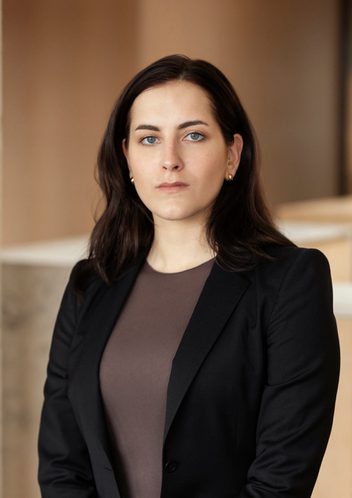
Sofia Studencki
Senior Lawyer
Stockholm
Newsletter
by Sofia Studencki
Published:
In a recent judgment from 21 May 2025, the Supreme Court of Sweden considered whether legal entities can claim compensation for non-financial damages in instances of copyright infringement (PMT 7965-24). The dispute concerned the unauthorised distribution of film works on a paid online service, which resulted in a criminal conviction for copyright infringement. The plaintiffs, two film companies, sought compensation for non-financial damages (Sw. Ideell skada).
Under the Swedish Act (1960:729) on Copyright in Literary and Artistic Works (Sw. Lag (1960:729) om upphovsrätt till litterära och konstnärliga verk) rights holders are entitled to fair compensation for unauthorised use when the infringement is intentional or negligent. Additionally, the law allows for damages beyond economic loss, taking into account factors such as damage to the reputation of the work and the importance of deterring infringement. While the list of factors is not exhaustive, Swedish legal practice has historically limited compensation for non-financial damages to rare exceptions when the claimant is a legal entity rather than a natural person.
In its reasoning, the Supreme Court distinguished immaterial damages linked to psychological or personal suffering, commonly relevant for individual authors, from claims advanced by legal entities. The Supreme Court emphasised that corporations, unlike individuals, cannot experience "pain and suffering" in the conventional sense. However, it acknowledged that the scope of non-financial damages under the Copyright Act is not restricted to personal emotional damage; in principle, it may encompass other forms of non-financial injury if substantiated by evidence.
In this case, the plaintiffs failed to demonstrate a sufficiently close connection between the original authors and the film companies that would justify compensation for a personal, author-related injury. Nor did they provide evidence of distinct non-financial damages independent of such a link. As a result, the Supreme Court found no basis for awarding non-financial damages.
This decision clarifies that while Swedish copyright law does allow for non-financial damages, legal entities face a high threshold. To succeed, they must articulate and prove a specific, demonstrable form of non-financial damages. The ruling highlights that purely monetary interests are typically protected for corporations, while personal or moral interests, such as authors’ feelings of distress, are not transferred automatically when copyright is assigned.

Senior Lawyer
Stockholm

Partner
Stockholm

Partner
Oslo

Partner
Oslo

Partner
Oslo

Senior Lawyer
Oslo

Special Advisor
Stockholm

Senior Associate
Oslo

Senior Associate
Oslo

Associate
Stavanger

Partner
Oslo

Partner
Oslo

Partner
Oslo

Partner
Oslo

Partner
Oslo

Managing Associate - Qualified as EEA lawyer
Oslo

Senior Lawyer
Stockholm

Associate
Stockholm

Associate
Oslo
